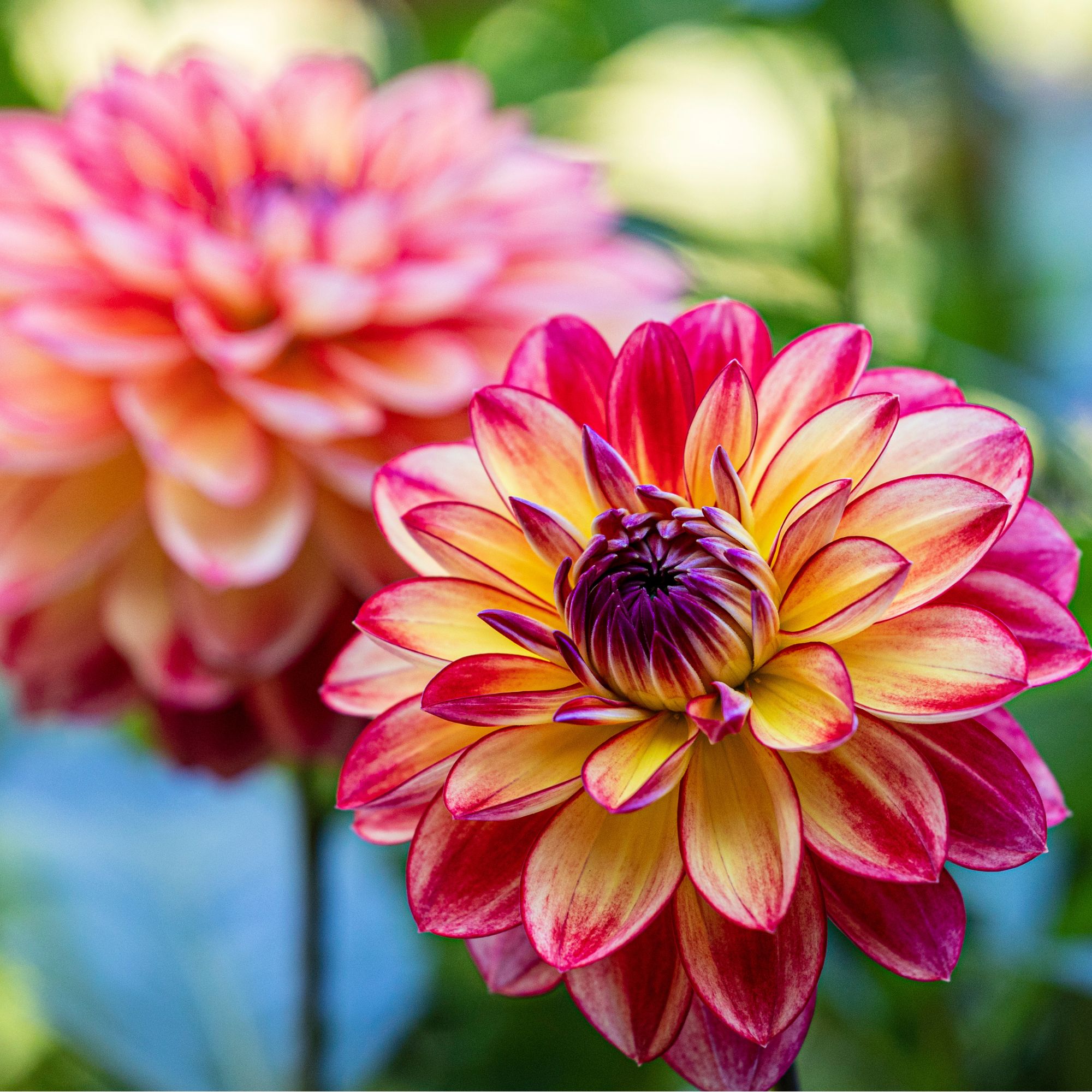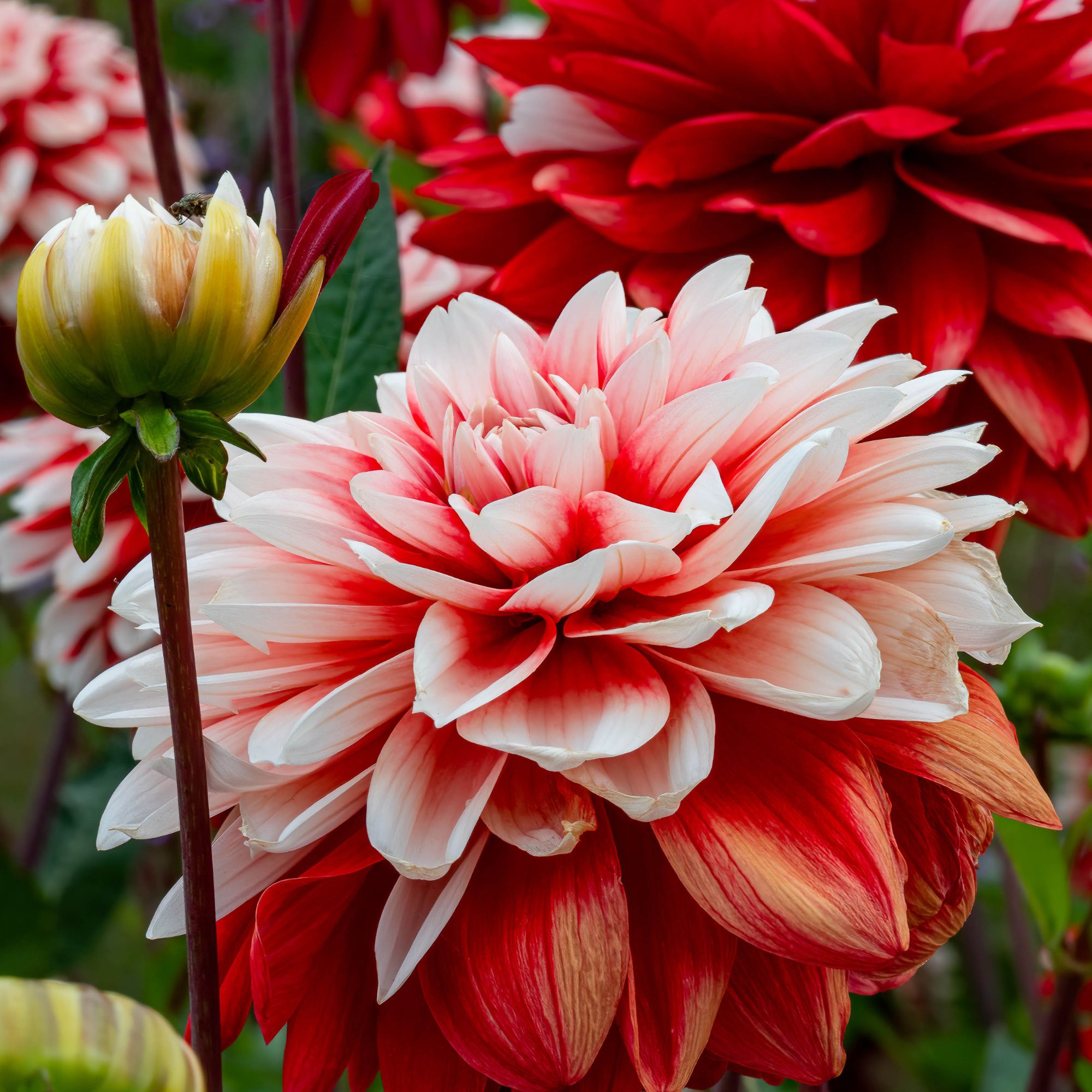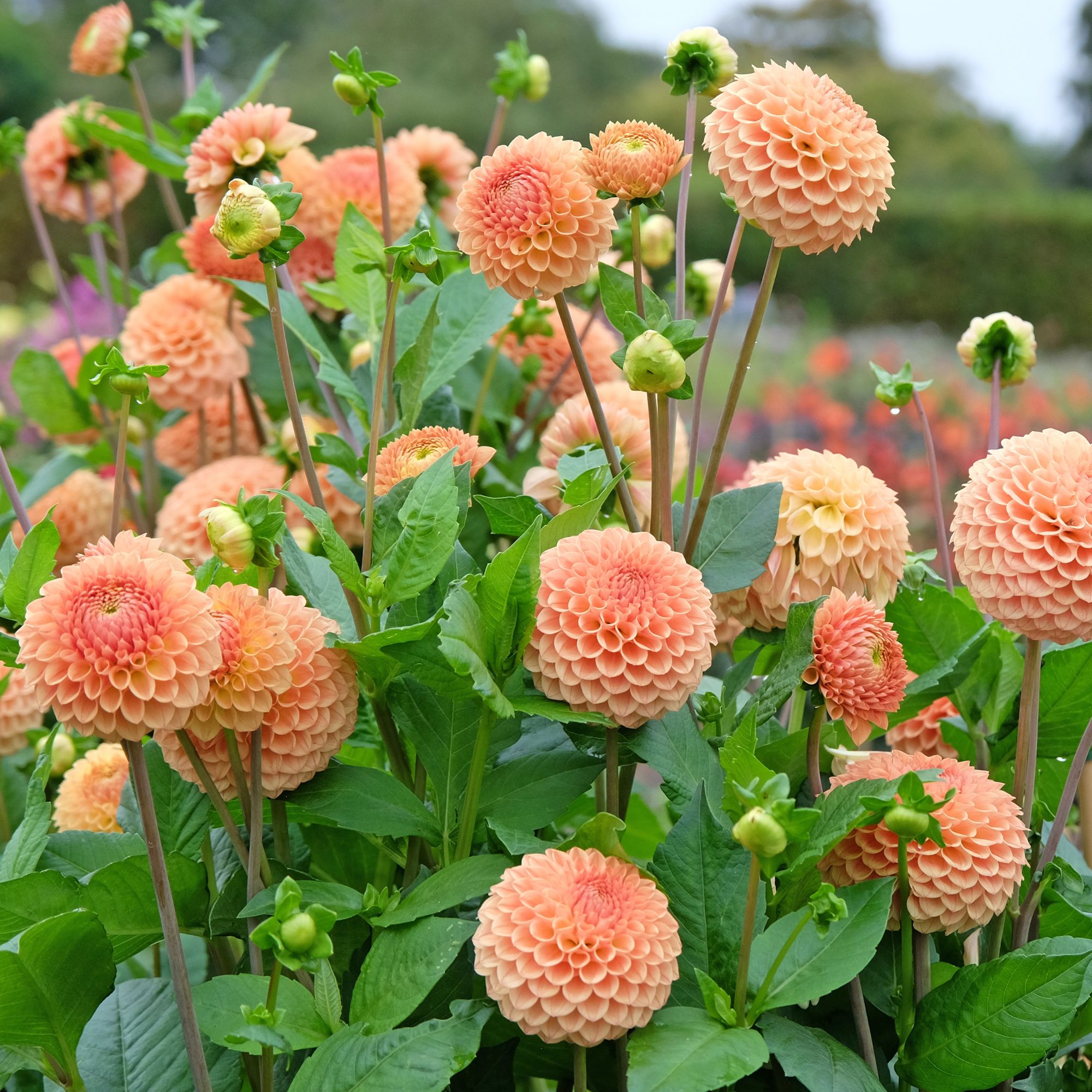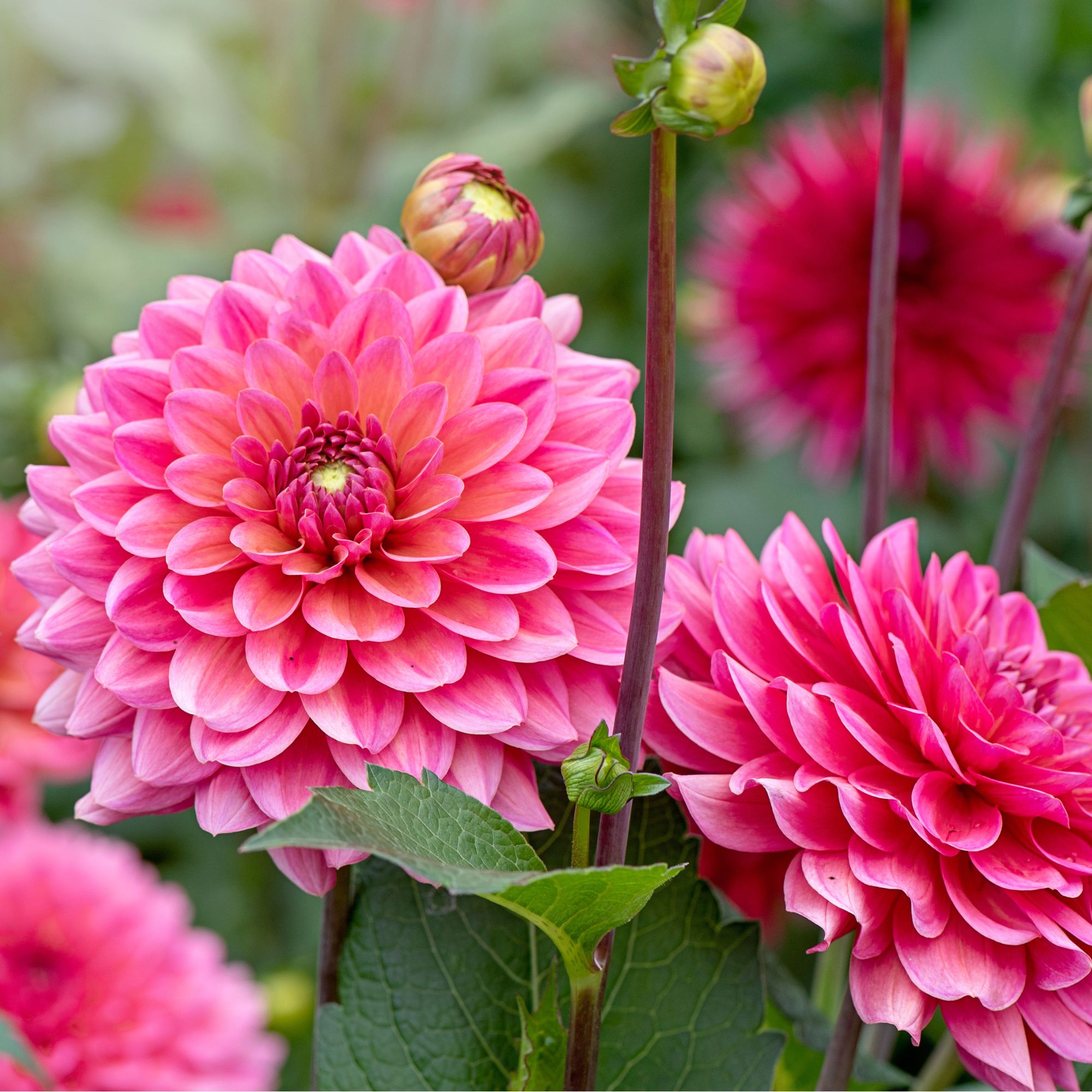
You probably don’t need us to tell you how stunning dahlias are. After all, one look at these giant, flamboyant flowers will prove as much. But when these blooms start to fade, you might start to wonder: Should you deadhead dahlias?
Dahlias offer some of the most beautiful flower heads out there. And while knowing when to plant dahlias and how to grow dahlias in pots will allow you to bring this idea to fruition, you also need to know what to do when your dahlias are in full bloom - and what to do when they’re not.
We’ve spoken with the experts and found out everything you need to successfully deadhead dahlias - including the one exception you should consider before picking up your secateurs.
Should you deadhead dahlias?

Yes, deadheading dahlias is an essential garden task - especially if you want your showy blooms to come back bigger and better next year.
‘The way to keep dahlias flowering for as long as possible from summer all the way through to the first frosts, is to continuously deadhead them,' explains Morris Hankinson, director of Hopes Grove Nurseries.
‘The most wonderful thing about this is that by cutting stems for displaying in a vase, the plant will continue to produce more stems and buds, meaning you can have dahlias inside and outside for a long period of time,’ he adds.
Why you should deadhead dahlias

But why should you deadhead dahlias? Well, by removing the spent flowers, you will prevent the plant from unnecessarily wasting energy on going to seed. Instead, it will use this energy for next year’s flower and root development. This will ultimately improve the overall health and appearance of the plant.
That’s not all, either. ‘Deadheading also helps to prevent any diseases that can occur in plants from decaying plant matter, as well as ensures that your dahlias stay looking clean and tidy throughout their planting lifespan,' explains John Clifford, garden expert at Gardenstone.
Why to not deadhead dahlias

However, to avoid deadheading mistakes, know that this doesn’t necessarily mean that you have to deadhead dahlias. If you’re growing them to collect the seeds and grow more around the garden, you could let them go to seed and then collect the seed pods for future planting. Just be warned that this will affect the health and flowering period of your current plant.
So, if you do want to collect the seed pods, we’d suggest deadheading 90% of your dahlias and then letting the remaining 10% go to seed. If not, it would be wiser to deadhead the whole plant for maximum plant health and beauty.
How to inspect dahlias for deadheading

Thankfully, knowing how to deadhead dahlias doesn’t require in-depth gardening knowledge. It does require a little time and patience, though, as it’s often hard to distinguish a spent dahlia flower head and a new bud - and the last thing you want is to accidentally cut off a new dahlia flower before it’s had the chance to show off.
Because of this, you need to properly inspect your dahlia before you start deadheading. While fresh buds will be round in shape, the spent flower heads will typically be more pointed in shape. John also adds, ‘New buds will be stronger and more perky than spent buds, which will be wilted.’
When you spot them, you should deadhead the spent flower heads as soon as possible. To do this, you’ll need to use clean pruning shears - and while you should always clean your gardening tools, this is especially important when deadheading dahlias as you want to prevent the spread of disease. So, clean your pruning shears in a disinfectant before touching your plant.
‘Simply snip the stem down to the next set of leaves and compost the old flower head,' advises Morris. 'The plant will then put energy into developing new buds for further flowering rather than sending all of its energy into the dying flower to produce seed.’
Once you’ve successfully deadheaded the spent flower heads, keep an eye out for any more over the coming weeks. And once the whole plant has been taken care of, all you need to do then is focus on overwintering your dahlias.
Deadheading essentials
The rust-resistant blades on these pruners are perfect for deadheading your dahlias, and they even come with a locking catch which makes it safer to store when you're not using them.
If deadheading your dahlias has got you in the mood to add more to your garden, these red blooms should definitely be your next purchase. Bright and bold, they're stunning.
This disinfectant is ready to use, and ideal for cleaning your pruners before deadheading. Simply pour a little on a clean cloth and wipe over the blades to prevent the spread of disease.
FAQs
Do you deadhead dahlias in pots?
You should treat dahlias in pots just as you would dahlias in the ground, which means that you should deadhead them regularly.
As the flowering period comes to an end, aim to deadhead your dahlia plant at least once a week to ensure you’re removing the spent flowers as soon as possible. This will stop the plant from wasting energy going to seed and use that energy to produce bigger and better blooms next year instead.
Do dahlias come back every year?
As the majority of dahlias are perennials, they should come back next year. However, it’s important to note that they are very tender perennials - which means that they may not come back next year if they are not given the proper care and attention over the cold, winter months.
Although a thick layer of mulch around your dahlias may protect them during the winter, the best way to overwinter dahlias is to lift up the tubers and store them in a warm, dry place until next year.
You should do this when the foliage has died back to give the bulbs enough chance to absorb energy for next year’s growth.
So, there you have it. Ideally, you should deadhead dahlias, but you don't necessarily have to if you want them to go to seed.







